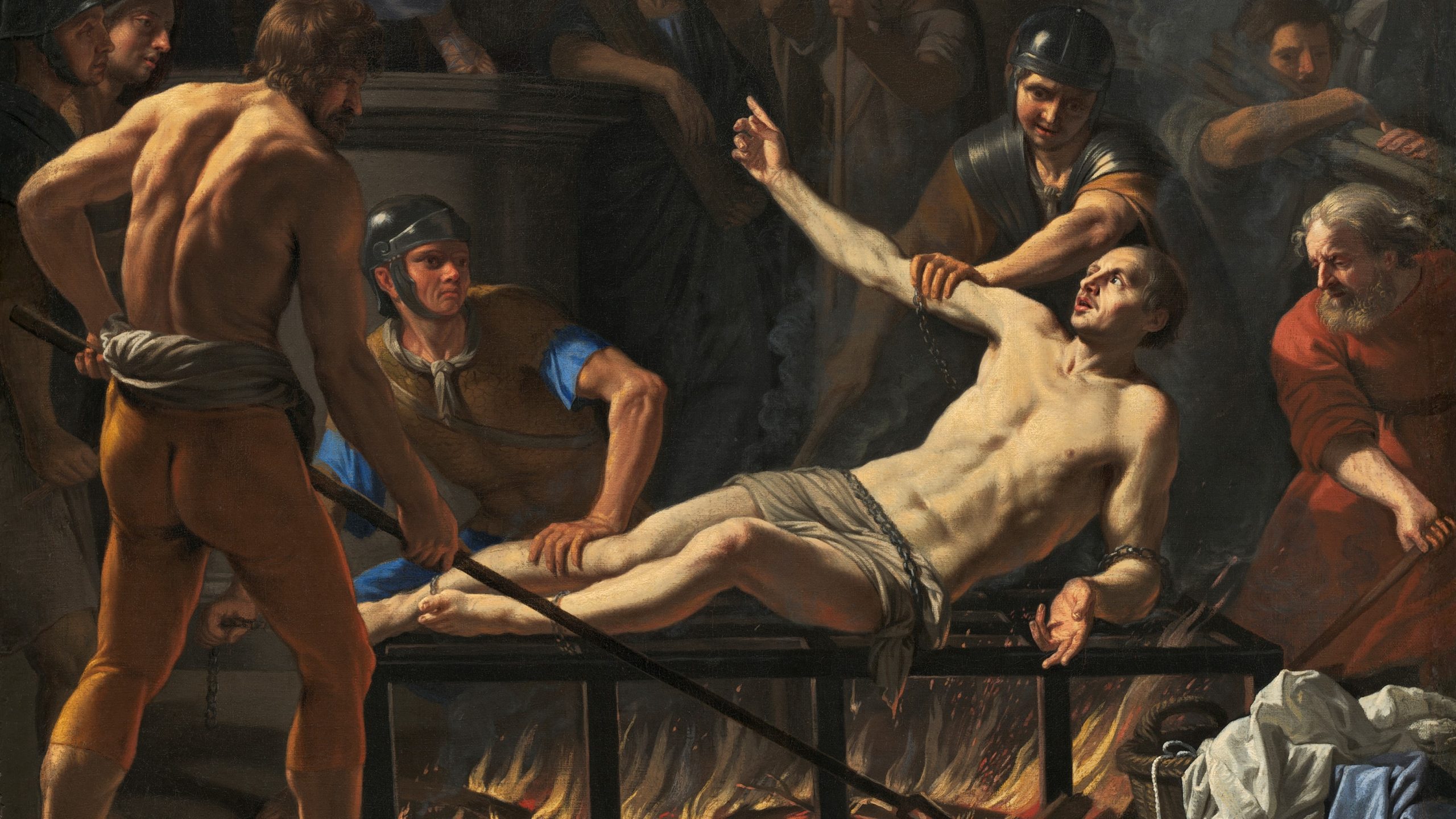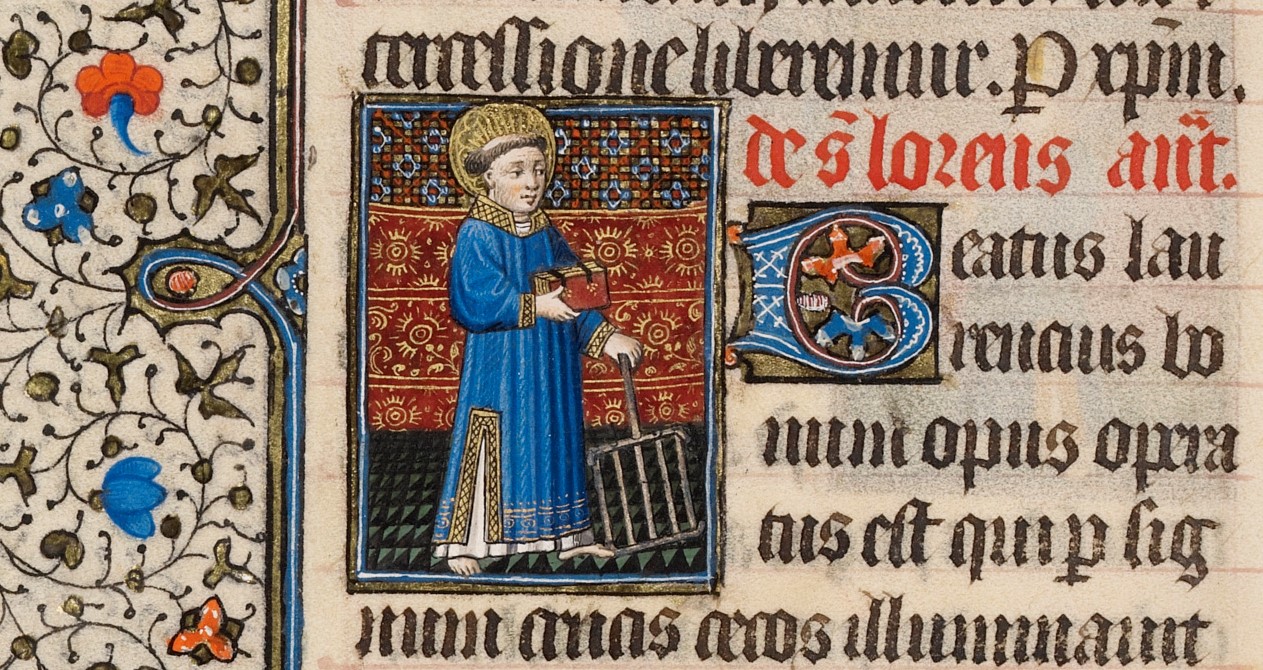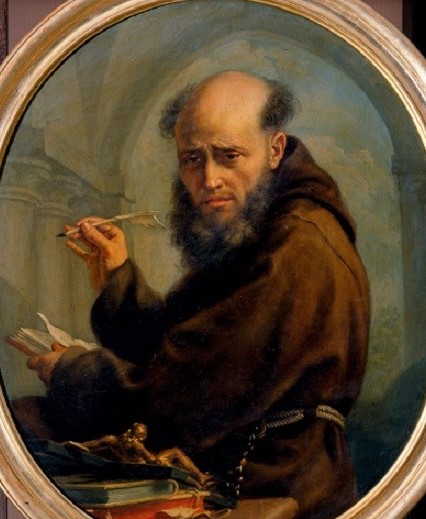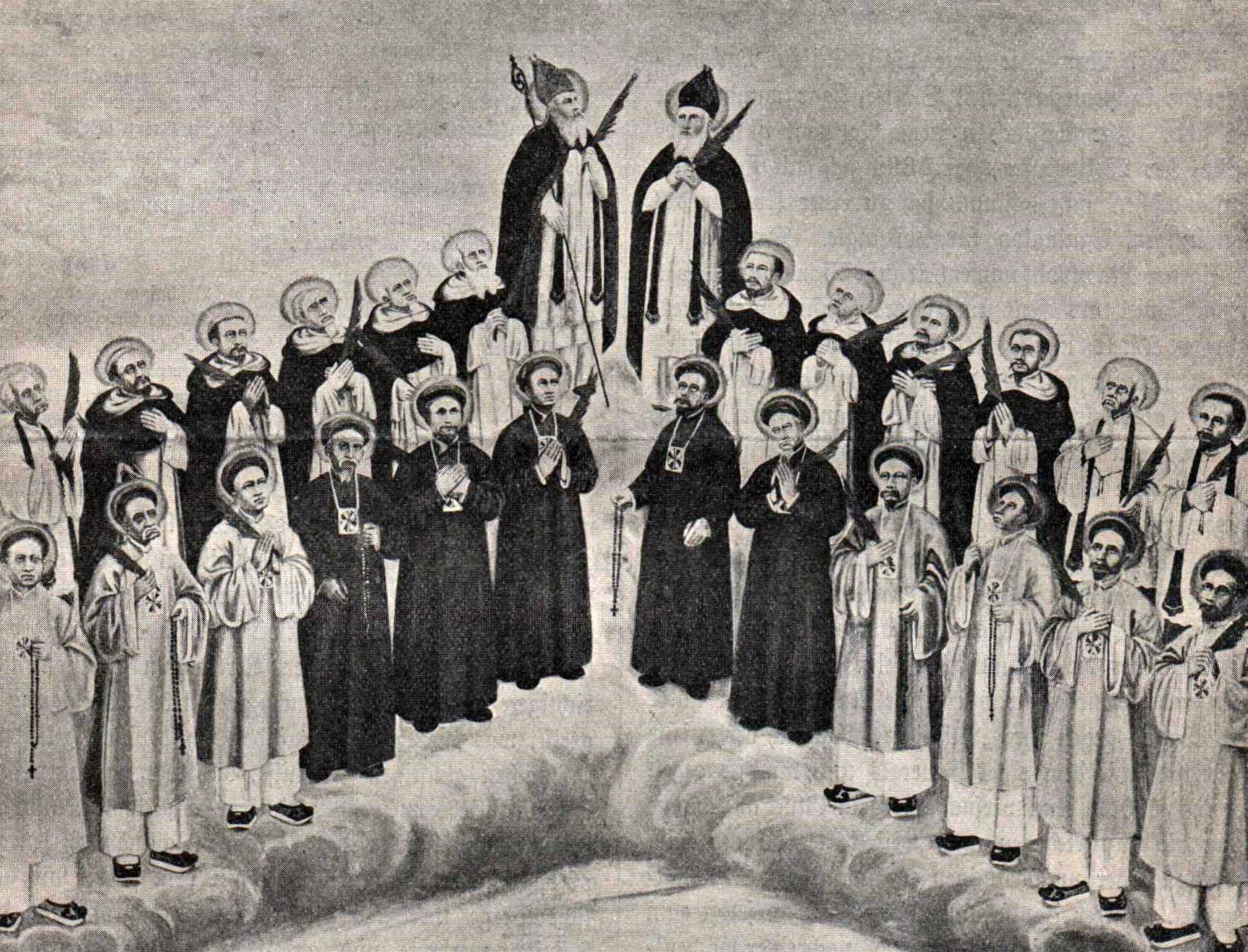Telling them apart: The Saint Lawrences
Kristina Glicksman
Tuesday, July 21, 2020

Lawrence (225-258)
…Linus, Cletus, Clement, Sixtus, Cornelius, Cyprian, Lawrence, Chrysogonus, John and Paul, Cosmas and Damian, and all your Saints… (from Eucharistic Prayer I)Lawrence lived and was martyred in the 3rd century and quickly became one of the most venerated saints of the early Church. He was born in the region of modern Spain, where he met the man who would become Pope Sixtus II. Together, they journeyed to Rome, where the new pope made him archdeacon – that is, head of the seven deacons of Rome, which made him responsible for looking after the Church’s treasury and distributing alms to those in need. In August 258, Emperor Valerian began a fresh persecution of Christians by ordering the death of all bishops, priests, and deacons. Pope Sixtus himself was captured and beheaded on August 6, and six of his seven deacons suffered the same fate. Tradition says that the official in charge demanded that Lawrence (the only deacon left) bring him all the riches of the Church. In one of the earliest surviving references to this story, the poet Prudentius puts these rather cheeky words in the official’s mouth:
“That which you know is Caesar’s render Unto him. That’s only right, For I believe your god has never Stooped to minting legal tender.” (Poem II of “Peristephanon”, translation by Len Krisak, 2020)Lawrence asked for three days to gather the Church’s vast wealth, and then at the appointed time, he revealed crowds of the poor, the crippled, the sick, and the lame. As St. Ambrose comments in his – the earliest – version of the story, “What better treasures has Jesus than those in which he loves to be seen?” (De officiis ministrorum 2.28.140). Needless to say, the greedy official was less than pleased and condemned Lawrence to a much slower and more painful death than his fellow deacons had endured. And it is Prudentius who tells us that he was roasted, joking with his captors to turn him over for proper cooking and to try if he was better raw or roasted. Although we don’t know how much of these stories is true, and though, in fact, Lawrence’s purported death-by-barbecue has been called into doubt, we do know that he did exist, that he was a deacon, that he was martyred for his faith, and that he was a hugely popular saint in the early Church and beyond. His feast day is the same day as his martyrdom: August 10.

Lawrence of Brindisi (1559-1619)
This St. Lawrence was an extremely gifted man and an important preacher during the Counter Reformation, now venerated not only as a saint but also as a Doctor of the Church. Born Giulio Caesare Russo in Brindisi, Italy, he acquired the name Lorenzo when he joined the Capuchin Franciscans as a young man, eventually being ordained to the priesthood. Being very intelligent and gifted with languages – but also a very saintly man – he was a popular and influential preacher. He became a valuable emissary of the pope to various rulers of Europe but also as a leader of evangelizing missions – first to the Jews of Rome and later to the people of Germany, heartland of the Reformation. He even had a stint as chaplain to the army of the Holy Roman Emperor, during which, armed only with a crucifix, he led vastly outnumbered Christian forces into victorious battle against the Turks in Hungary. But despite all the heady appointments and long immersion in the political sphere, St. Lawrence maintained a deep spiritual life of prayer and devotion, as can be seen in the many volumes of sermons and other religious texts he has left behind. He died at exactly 60 years old on his birthday, July 22. His feast day is July 21.
Those are the St. Lawrences we hear about the most, but here are a few more you might be interested to learn about:
St. Lawrence Justinian (1381-1456) was the very first Patriarch (this is, Bishop) of Venice. And he’s not the only saint who held that post. St. Pius X and St. John XXIII also share that distinction. His feast day is January 8. St. Lawrence O’Toole (c. 1128-1180) also goes by his Irish name: Lorcán Ua Tuathail. Son of Irish royalty, he became abbot of the famous monastery at Glendalough and later Archbishop of Dublin. His feast day is November 14. St. Laurence of Canterbury (?-619) was the second Archbishop of Canterbury, the successor to St. Augustine and one of the first missionaries to the people of England. His feast day is February 3. St. Lawrence of Siponto (?-c.545) was the Bishop of Sipontum, an ancient town in southern Italy, which was also an important port until it was abandoned in the 13th century. His feast day is February 7. St. Lorenzo Ruiz (1594-1637) is also known as St. Lawrence of Manila. Born into a Catholic, Chinese-Filipino family, he lived in Manila with his wife and children, but because of a false accusation of murder, he found himself on a ship headed toward Japan, where he was captured and killed during the intense and violent Christian persecutions of the time. He is the first Filipino saint and martyr and one of the patron saints of the Philippines. His feast day is September 28. St. Lawrence Ngon (c.1840-1862) and St. Lawrence Huong Van Nguyen (c.1802-1856) were two of the 117 Vietnamese martyrs, who represent the hundreds of thousands of Christians persecuted, tortured, and killed in Vietnam for their faith during the 18th and 19th centuries. Their feast day is celebrated on November 24, together with all Vietnamese martyrs, named and unnamed. St. Lawrence Han Ihyong (?-1846) was a Korean nobleman and victim of the Christian persecutions of the 19th century, along with Frenchman St. Laurent-Joseph-Marius Imbert (1796-1839), Apostolic Vicar of Korea and Titular Bishop of Capsa. The 103 Korean martyrs have a common feast day on September 20. We don’t know much about St. Lawrence of Novara (?-c.397), except that he was a priest and a martyr of the early Church. According to tradition, he was killed along with a group of children he was teaching. His feast day is April 30. St. Lawrence Wang Bing (c.1802-1858) was a Chinese layman and a catechist. He was executed by beheading along with two other catechists after refusing to renounce his Christian faith. He is remembered on July 9 as one of the 119 companions of St. Augustine Zhao Rong.
Related Articles:
Category: Saints and Blesseds
Tag: "Telling them apart", Archbishop of Canterbury, Martyrs, Saint Lawrence, St. Lawrence of Brindisi
Pope’s General Audience – February 5, 2025
Wednesday, February 5, 2025
 Pope Francis
Pope Francis
In his Wednesday General Audience, Pope Francis continued this cycle of catechesis on "Jesus Christ our Hope," as part of the Jubilee 2025. This week he reflected on the Magnificat, the Virgin Mary's Song of Praise after she is greeted by her cousin Elizabeth.
Pope’s General Audience – January 29, 2025
Wednesday, January 29, 2025
 Pope Francis
Pope Francis
Reflecting on the vision given to St. Joseph in the Gospel of Matthew, Pope Francis said that "He dreams of the miracle that God fulfils in Mary’s life, and also the miracle that he works in his own life: to take on a fatherhood capable of guarding, protecting, and passing on a material and spiritual inheritance."
Pope’s General Audience – January 22, 2025
Wednesday, January 22, 2025
 Pope Francis
Pope Francis
Pope Francis continued this cycle of catechesis on "Jesus Christ our Hope." Reflecting on the Angel Gabriel's greeting to the Virgin Mary at the Annunciation, he said that "The 'Almighty,' the God of the 'impossible' is with Mary, together with and beside her; He is her companion, her principal ally, the eternal 'I-with-you.'"
Pope’s General Audience – November 27, 2024
Wednesday, November 27, 2024
 Pope Francis
Pope Francis
In his weekly catechesis, Pope Francis reflected on the fruits of the Spirit. Beginning with Joy, he said that "not only is it not subject to the inevitable wear of time, but it multiplies when it is shared with others! A true joy is shared with others; it even spreads."
Pope’s General Audience – November 13, 2024
Wednesday, November 13, 2024
 Pope Francis
Pope Francis
In his weekly catechesis, Pope Francis reflected on how the Holy Spirit empowered the Blessed Virgin Mary to become the Mother of God.













